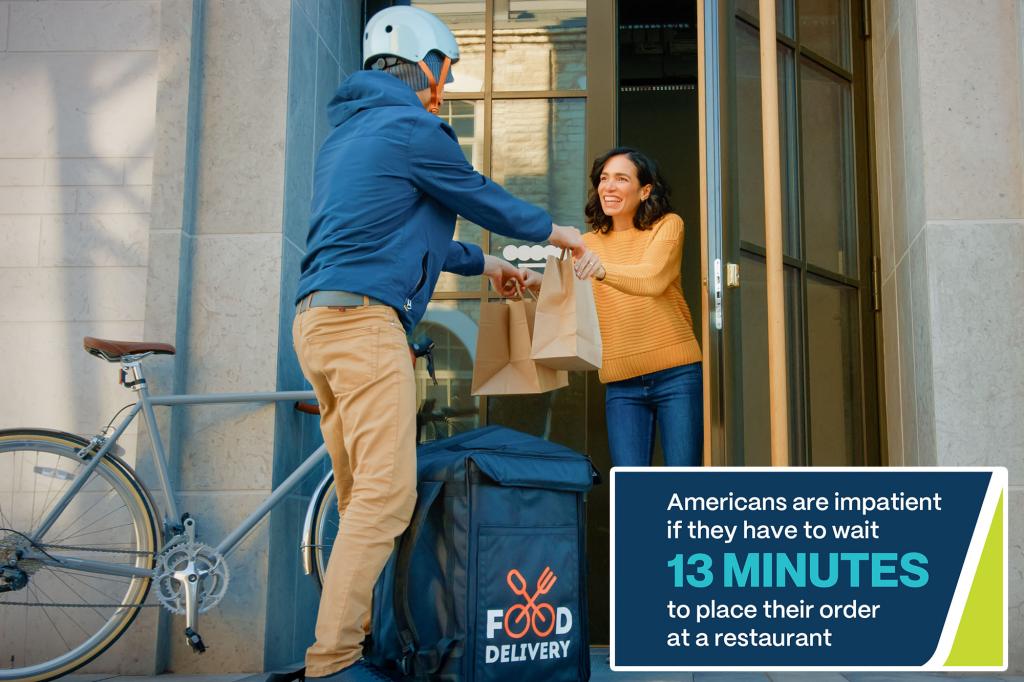The results of a survey of 2,000 U.S. adults revealed that the average American gets impatient after waiting for food delivery for less than 30 minutes. Americans in a 10-mile radius of the restaurant start to get restless after just 29 minutes, which is also the time they feel it should take to prepare a meal at home. Upon entering a restaurant, 21% of respondents are only willing to wait 10 minutes or less to be seated. Once seated, impatience to order sets in after an average of 13 minutes, and it takes just 17 minutes after ordering for restlessness to grow for the food to arrive. Despite 71% describing themselves as patient, many exhibit impatience in everyday scenarios, such as waiting in line at the grocery store or being stuck behind a slow-moving car at a stop sign. Nearly half of Americans are willing to pay extra for faster delivery when shopping online.
The survey also delved into the concerns that Americans have for their loved ones over the age of 65. The results showed that 63% of respondents have a senior in their life, and 48% worry about them daily. The top concerns include health, happiness, and loneliness, along with worries about seniors eating alone or struggling to find their next meal. The survey highlighted the disparity between the minor inconveniences that Americans face on a daily basis compared to the challenges that seniors encounter. Meals on Wheels America President and CEO Ellie Hollander emphasized that older Americans are in urgent need of support, as government funding and resources are insufficient to meet the demand for services. Many Meals on Wheels programs have waitlists, with an average wait time of three months.
Despite the challenges faced by seniors, the survey revealed that a portion of Americans were not aware of the existence of waitlists for Meals on Wheels programs. Nearly two-thirds of respondents were aware that seniors are more susceptible to feelings of loneliness and isolation. Hollander emphasized the importance of providing more resources to Meals on Wheels programs to ensure that every senior in need receives assistance. She underscored the urgency of the situation, stating that older Americans cannot wait any longer for the support they require. Meals on Wheels America recently launched an initiative to “End the Wait” and provide assistance to every senior in need.
The survey methodology included responses from 2,000 general population Americans and was commissioned by Meals on Wheels America. The survey was conducted online by Talker Research between October 2 and October 4, 2024. The survey results shed light on the impatience levels of Americans in various everyday scenarios and highlighted the importance of supporting programs like Meals on Wheels that provide essential services to seniors. With increased awareness and resources, organizations like Meals on Wheels can work towards reducing waitlists and ensuring that every senior receives the support they need to combat feelings of loneliness and isolation.















